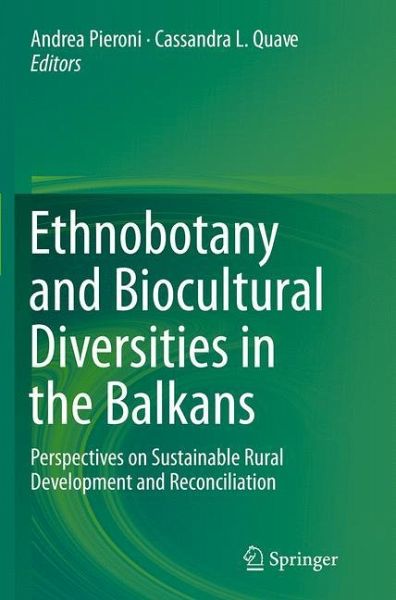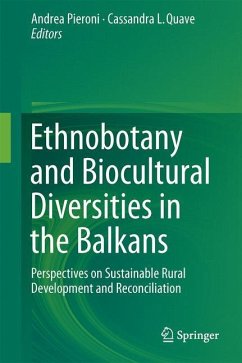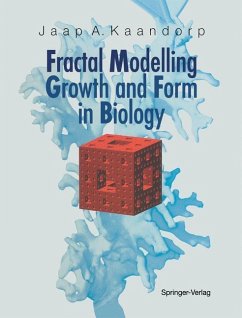
Ethnobotany and Biocultural Diversities in the Balkans
Perspectives on Sustainable Rural Development and Reconciliation
Herausgegeben: Pieroni, Andrea; Quave, Cassandra L.
Versandkostenfrei!
Versandfertig in 6-10 Tagen
113,99 €
inkl. MwSt.

PAYBACK Punkte
57 °P sammeln!
This volume addresses recent and ongoing ethnobotanical studies in the Balkans. The book focuses on elaborating the relevance of such studies for future initiatives in this region, both in terms of sustainable and peaceful (trans-regional, trans-cultural) rural development. A multi-disciplinary viewpoint is utilized, with an incorporation of historical, ethnographic, linguistic, biological, nutritional and medical perspectives. The book is also authored by recognized scholars, who in the last decade have extensively researched the Balkan traditional knowledge systems as they pertain to percept...
This volume addresses recent and ongoing ethnobotanical studies in the Balkans. The book focuses on elaborating the relevance of such studies for future initiatives in this region, both in terms of sustainable and peaceful (trans-regional, trans-cultural) rural development. A multi-disciplinary viewpoint is utilized, with an incorporation of historical, ethnographic, linguistic, biological, nutritional and medical perspectives. The book is also authored by recognized scholars, who in the last decade have extensively researched the Balkan traditional knowledge systems as they pertain to perceptions of the natural world and especially plants.
Ethnobotany and Biocultural Diversities in the Balkans is the first ethnobotany book on one of the most biologically and culturally diverse regions of the world and is a valuable resource for both scholars and students interested in the field of ethnobotany.
Ethnobotany and Biocultural Diversities in the Balkans is the first ethnobotany book on one of the most biologically and culturally diverse regions of the world and is a valuable resource for both scholars and students interested in the field of ethnobotany.














